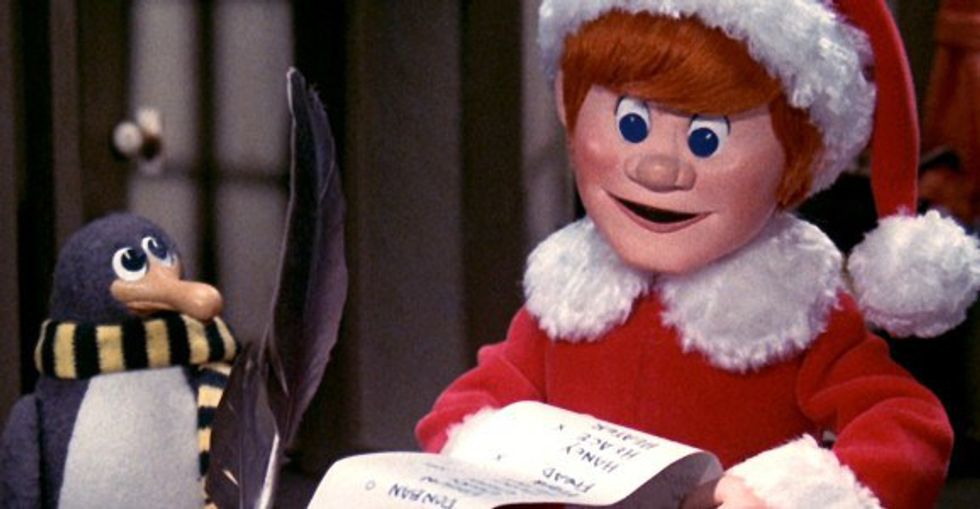Everyone has heard of Santa Claus at least once in their life. Whether it was on a popular movie, or seeing the guy in red in a mall, everyone has heard of him. We know of the man, but where does he come from? What does he symbolize?
Santa Claus comes from many legends: Father Christmas, Saint Nicholas, etc. Saint Nicholas is the most well known history of Santa, being a man that gave out generous gifts to the poor. Both Saint Nicholas and Father Christmas are tied to the 6th of December, the feast day of Saint Nicholas. When it was moved to the 25th of December, the Victorian Father Christmas Festival was moved as well. Father Christmas was a symbol of good cheer.
Sinterklaas (from Dutch culture) is the main look-a-like to Santa Claus, where the popular Christmas figure got his looks. An older man, long white beard, red robes. Often in the Netherlands, both Saint Nicholas Day and Christmas are both celebrated.
In Yule traditions, the Wild Hunt took place on Christmas Night where Wodan would fly through the sky and give out gifts to people. He was also an older man with a long white beard.
Many modern ideas of Santa Claus came from the book "The Night Before Christmas" written in 1823. The reindeer, sleigh landing on the roof, bringing a sack full of toys, and sliding down the chimney all came from this book. The stockings as well became incorporated into the Santa Claus story.
Thomas Nast was the first to place Santa at the North Pole, saying that he lived up in the ice and snow. More and more modern culture adapted new roles of modern Santa, leaving milk and cookies out for him in the US and Canada for instance. Many children will leave carrots out for the reindeer. The elves were added into his workshop as well, helping Santa out all year long to make presents for good children.
Those who work as Santa's in malls and parades and other organizations, all seem to understand that if a child detects them as a "fake" Santa, they say that they are just helping him out and are reporting back to him, so that the real Santa can focus on making toys.
Letters to Santa have also become a big tradition, with the United States Postal Service holding collection boxes for these letters since 1912. Workers in the postal offices and volunteers write replies to children all over the world. Companies go above and beyond each year, tracking Santa and giving updates on where he is on Christmas Eve delivering presents. News stations say that their meteorologists can track him on their radars when he gets close.
Some believe that telling children about Santa is harmful to their trust, when in reality, its not. Dr. Condry talked to over 500 children and none of them were harmed or unhappy in the fact that their parents lied to them about Santa. Why should they be? Even though he is not a real figure, he is very real in our global culture. Why would all of these people across the globe all have the same understanding to tell children about Santa and spread the joy? None of the trackers had to come around, no one has to reply to the letters, and yet they do.
Santa Claus is the embodiment of Christmas itself. He is giving, full of joy and peace, and just wants to help others. He is filled with the magic of Christmas, the magic that brings joy and happiness to everyone, and brings out generosity in others too. Christmas is a time of giving, of joy, of family, of happiness, and Santa Claus stands for all of those things. He truly is the Spirit of Christmas, the symbol of Christmas.

























